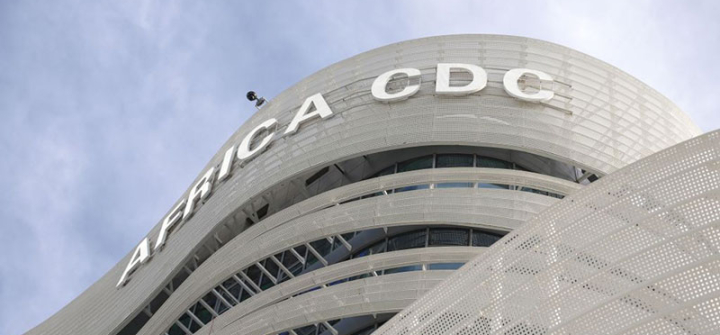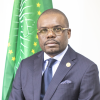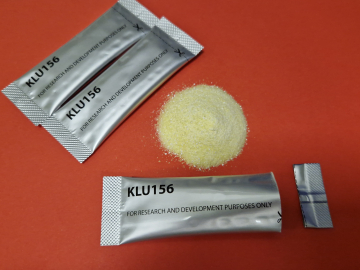Africa’s Contribution to Global Health Security
The COVID-19 pandemic has been a stark reminder of the fragility of global health systems. As the world reels from its impact, it is imperative to rethink and reinforce our approach to health security with an eye toward building resilient health systems for pandemic preparedness, and the necessity of collaboration.
Earlier this week, the U.S. brought world leaders together for a global health security conference, to solidify a unified front in tackling health crises. This inaugural event is a significant milestone as it reinforces the belief that health security is a collective threat, not confined by country or regional boundaries.
The Biden administration recognizes health security as a shared global responsibility, with two key appointments: Ret. Maj. Gen. Paul Friedrichs will lead the White House’s new Office of Pandemic Preparedness and Response, and John Nkengasong, PhD, leads the State Department’s Bureau for Global Health Security and Diplomacy.
The active participation of the Africa Centers for Disease Control and Prevention in this inaugural event is rooted in the conviction that shared commitment and support are key to protecting the world’s population. We come to the table armed with a new blueprint for a more secure global health framework that offers solutions designed for Africa’s unique health landscape, while being acutely relevant to global health security challenges.
This blueprint is not just a strategy for a resilient Africa but a global template for health security that prioritizes community, connectivity, capacity, collaboration, and climate.
Africa is playing a pivotal role in the global health security dialogue. Africa’s unique epidemiological profile, marked by a youthful population, dynamic socioeconomic factors, and a burgeoning scientific community, presents an opportunity for the continent to lead in novel approaches to health security. The traditional narrative that paints Africa as merely a beneficiary of global health initiatives is being rewritten. Today, Africa is a key player, a hub of innovation, and a vital voice in shaping health security policies.
A cornerstone of our vision is the expansion of Public Health Emergency Operation Centers across the continent. These hubs are crucial for coordinating responses to health emergencies and monitoring outbreaks. Unfortunately, only 12 African countries currently have fully functional centers. With the support of our partners, we aim to establish these centers in every African nation, integrating them into a continent-wide network for an efficient and coordinated response.
In the face of a disproportionate burden of infectious diseases, Africa must be at the forefront of genomic research and technology. Our continent-wide network for pathogen genomics initiative boasts a Next Generation Sequencing Academy for training and upskilling, cloud-based data management and the development of use cases for pathogen genomic sequencing tailored to specific countries. This initiative is crucial for empowering our public health experts and fostering data-driven decision-making to preempt and respond to disease threats.
Despite being home to only 17% of the world’s population, Africa accounts for nearly half of the global burden of infectious diseases. Our experience with Ebola, COVID, and a rise in antimicrobial resistance underscores the need for innovative, local solutions. The pathogen genomics initiative is a response to this challenge, democratizing next-generation sequencing technology to enhance disease surveillance and public health research.
Tackling both infectious diseases and the growing challenge of noncommunicable diseases, as well as the impacts of climate change on health, requires comprehensive policies. That includes enhancing capacity for NCD prevention and management, establishing climate-resilient health systems, and advancing digital health solutions. We are committed to transforming health care delivery by investing in local manufacturing and technological innovation. A key component of our strategy is the local production of health products, including vaccines, therapeutics, and diagnostics, aiming to secure the supply of essential health commodities and stimulate local innovation and research.
Africa CDC is dedicated to nurturing partnerships that transcend borders, fostering data-sharing networks, and promoting policies that guarantee equitable access to medical countermeasures, including vaccines. As we enhance our capacity for medical research and development, Africa’s contribution to the global health security ecosystem becomes even more pivotal.
This is a decisive moment for global health security, a call to action for nations to unite under a common flag and cement the notion that health security is not a regional concern but a global guarantee. Our model, grounded in partnership and collaboration, leveraging local capabilities, technology, and innovation, sets a new standard for global health resilience. In concert with the global community, Africa is committed to shouldering the responsibility of not just its own health security but aims to contribute substantially to the rest of the world.
Together, we can forge a future in which pandemics and health crises are managed with collective wisdom and concerted action, ensuring no nation, community, or individual is left behind.
Jean Kaseya, MD, MPH, is director-general of Africa Centres for Disease Control and Prevention (Africa CDC).
Join the 50,000+ subscribers in 170+ countries who rely on Global Health NOW summaries and exclusive articles for the latest public health news. Sign up for our free weekday newsletter, and share the link with friends and colleagues.
Africa CDC headquarters in Addis Ababa, Ethiopia. March 31, 2023. Michael Tewelde/Xinhua via Getty





